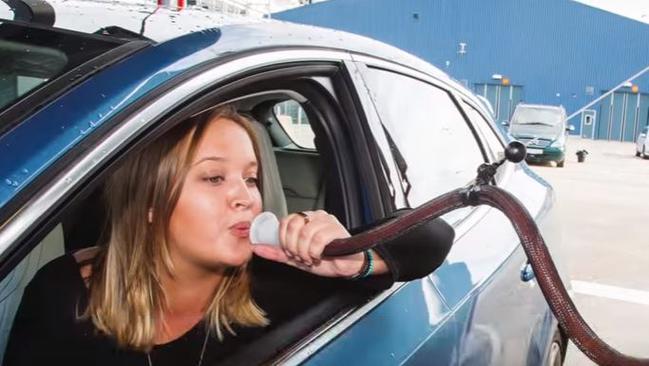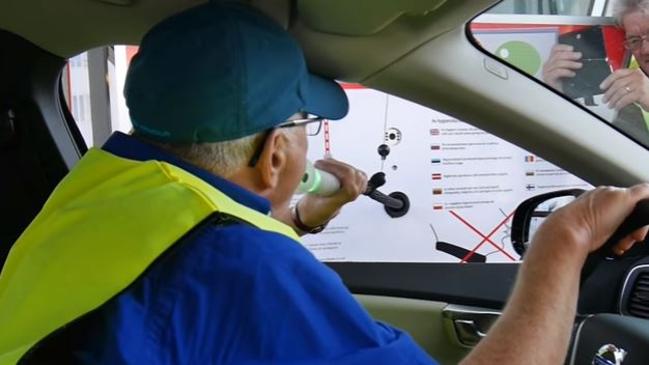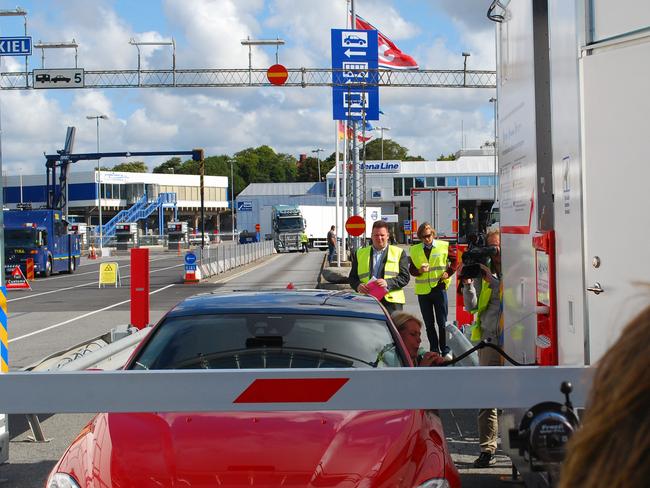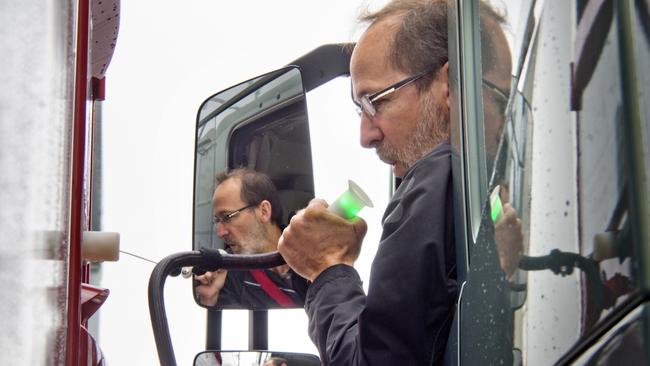Swedish-style ‘alco-gates’ to be trialled in Victoria
EXCLUSIVE: DRIVERS will be forced to pass breath tests before they can drive out of carparks under a radical bid to slash the state’s road toll.

VIC News
Don't miss out on the headlines from VIC News. Followed categories will be added to My News.
MOTORISTS will be forced to pass breath tests before they can drive out of carparks under a radical bid to slash the state’s road toll.
The Sunday Herald Sun can reveal that hi-tech alcohol detection units will be fitted to carpark boom gates, which would remain lowered until a motorist is able to prove they are under 0.05.
The Transport Accident Commission will run the trial of Swedish-style “alco-gates” as part of a road safety crackdown, after securing funding in this year’s Budget.
Money has been set aside to start testing technology from next year, and talks will be held with local councils to assess suitable carparks or community venues that can be targeted.
The TAC’s road safety manager Samantha Cockfield said the plan was to target people who may think they are OK to drive. It could be done in partnership with venues where “a lot of people would be intending to at least have a drink”.
Minister for Roads and Road Safety Luke Donnellan backed the trial.
WHAT DO YOU THINK? HAVE YOUR SAY IN THE COMMENTS SECTION BELOW


“Alcohol-impaired driving accounts for about 20 per cent of motorists killed on Victorian roads so we’re trialling new technology. (It) is aimed at helping people make more informed decisions before getting in the car and driving home,” he said.
One option for the alco-gates, which are used in Sweden to test people coming off ferries, is to use alcohol-sensitive panels on which motorists breathe to prove sobriety.
If the panel picks up a high reading, then the boom gates do not open and motorists would have to stay in the carpark until they sobered up — or catch a taxi home.
The futuristic initiative is part of the Andrews Government’s $1 billion Towards Zero strategy, and will be undertaken at the same time as testing of self-driving cars that the TAC believes will be on our roads within two decades. A world-first fatigue test is also being developed.
Ms Cockfield said people naturally made mistakes, but getting in place systems to help reduce the risk of error would reduce the road toll.
“To get to a time that nobody will be killed or seriously injured on our roads, what we’d be relying on is asking for perfect human behaviour,” she said. “It’s not going to happen, whereas the reliability of technology is far greater.”

The alco-gates program is likely to involve police in the early stages, to supervise the program slated to start operating within about two years.
But Ms Cockfield said fines weren’t being considered as the “idea is not about punishing people, it’s about protecting people and keeping them safe”.
She said the system’s accuracy was “of the highest standard” and she hoped it would act as a deterrent, and the TAC would also work with car manufacturers to develop similar technology for personal use.
The TAC also has secured government funding to test connected cars — which communicate wirelessly to avoid collisions — and self-driving cars. She said automated vehicles were 20 years away from hitting Victorian roads, and although they may need lower speed limits, drivers would benefit from less congestion to save time.
“If it picks you up from your house, drops you off at your office, you don’t have to park it and you can work the whole time or read the paper — do you care that it’s an extra five to 10 minutes?” she said.
The Andrews Government invested $850,000 to develop a world-first roadside fatigue test, potentially using a German model linking fatigue to pupil movement.
A driver who is awake for 17 hours has the same level of impairment as a driver who has a blood-alcohol level of 0.05 per cent, and 10 per cent of road deaths involve fatigue. 116 people have died on Victorian roads this year.
“We’ve always been at the forefront of roadside testing ... so it makes sense that we might be the first to do something around fatigue,” Ms Cockfield said.


